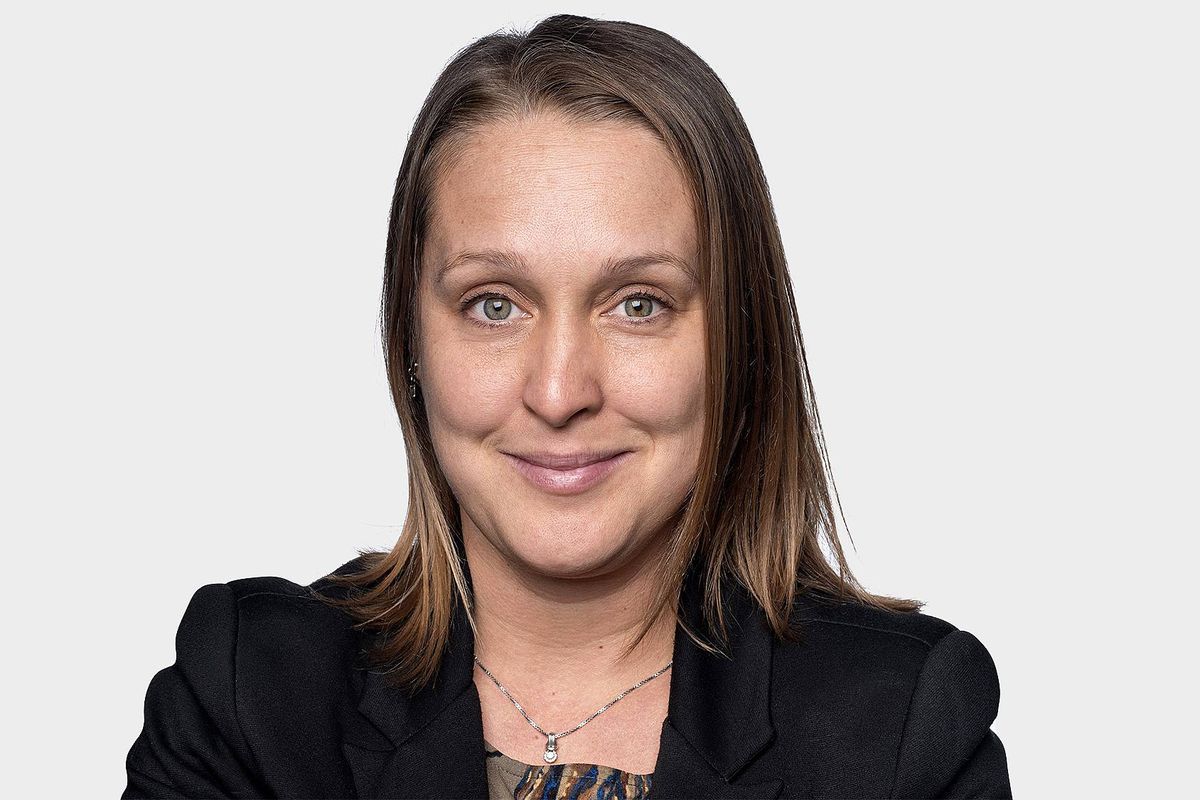
Originally posted via theglobeandmail.com – https://www.theglobeandmail.com/investing/personal-finance/article-better-personal-finance-tips-2021-rob-carrick-john-heinzl-power-your/
2020 challenged Canadians’ finances in unprecedented ways. As we make our way through 2021, here are some tips from Globe journalists, along with a selection of stories, to help you steer clear of trouble and keep your finances on track. #PowerYourFinances
Here are timely financial recommendations from The Globe’s finance and investing columnists.

Rob Carrick’s top personal finance tips
Sign up for the Carrick on Money newsletter for proven personal finance advice on saving and investing.
ALWAYS BE INVESTING
- Don’t try to time stock-market ups and downs.
- Have money automatically transferred into your investment account from your chequing account every time you get paid.
- The stock market is for money you won’t need for 10 years or more.
A sure sign of an overheated stock market – people are trading from the bathroom.
Four ways your personal finances will be tested in 2021
Rob Carrick’s ETF Buyer’s Guide 2020: The Complete Series
BE A FRUGAL INVESTOR
- Investment returns ahead may not be as great as in 2020, which means low fees are important.
- Look for value in the fees you pay your adviser and for investment products – the lowest of low fees may not be the best value for you.
- Exchange-traded funds offer a low-cost investing option for the masses, and robo-advisers offer a reasonably priced way to get into ETFs with some expert help.
There are signs that fee competition in the ETF business has stalled out
Is 1% a fair fee for advice on stocks?
A new era of low-cost investing has arrived for Gen Z and millennials
BUILD YOUR ‘LIFE HAPPENS’ FUND
- Keep enough in a savings account to cover your expenses in case you lose your job, your income is cut or an emergency happens.
- The pandemic has shown the importance of having cash to fall back on.
- Keep your money safely parked in a savings account.
Use The Globe’s pandemic personal finance tool to make use of the savings that have built up.
WATCH OUT FOR INFLATION
- Governments have been pouring money into the economy to fight the pandemic.
- Concern that inflation will pick up from low levels is rising.
- Investments that hedge against inflation include gold, commodities, real estate and real-return bonds.
Seven ETFs to help tame an expected rise in inflation
Warnings about inflation are everywhere. Here’s why investors should stay calm.

John Heinzl’s investing advice
Sign up for the Globe Investor newsletter for money-making ideas, insight and market analysis.
- Focus on high-quality stocks that have a history of dividend increases, such as banks, utilities, power producers and large consumer-oriented companies.
- Buy and hold. Don’t try to trade your way to wealth.
- Diversify with low-cost exchange-traded funds, including at least one ETF that provides broad exposure to the U.S. market.
Reinvest your dividends to make the most of compounding. - Don’t be rattled by market setbacks. Investors who stay the course during bad times, or use the downturn to acquire additional shares at cheaper prices, make out well in the long run.
Here’s why banks and utilities are more important than ever
Self-directed investing: A beginner’s guide to getting started as a DIY investor.
ETFs are healthier retirement options, so why don’t more advisors use them?
Time to play defence with your portfolio? Check out these 10 dividend-paying utilities
John Heinzl’s secrets for building a powerful dividend growth portfolio
Is this a bubble or not? Three things wise investors should keep an eye on
Chart watch: What’s ahead for the stock market in 2021

Roma Luciw’s personal finance advice
Listen and subscribe to Stress Test, the Globe’s personal finance podcast hosted by Roma and Rob Carrick.
KIDS ARE EXPENSIVE, SO GET READY
- Start saving before the baby is born for diapers, strollers and, most notably, a drop in salary during parental leave.
- Open an RESP as soon as possible – instead of presents, ask family members to contribute.
- Daycare is a huge financial burden, so don’t worry if other savings goals are temporarily neglected.
- When child-care costs ease, redirect that money to repaying debts and saving for retirement.
Stress Test Season 1 Episode 7: The cost of kids
How long will kids cost you money?
BE MINDFUL WITH YOUR BANKING
- Don’t hesitate to ask your bank for better deals that suit your needs, and if you don’t find them, shop around.
- Open a high-interest savings account – online and alternative banks often have the best savings rates.
- Credit-card debt is dangerous – handle them with care.
- Automate your finance so money gets deposited automatically into saving and spending accounts.
How to score $300 in cash by switching to a new bank
What you need to know about debt and how to manage it
BUILD WEALTH AS A RENTER
- Rents have fallen during the pandemic. Use this opportunity to lower your monthly housing costs by moving or renegotiating your rent.
- Save the money that a homeowner would spend on paying property taxes, renovations and maintenance into a savings account.
- To end up with as much wealth as a homeowner, invest that money in a diversified portfolio.
The truth is that renting is a smart option
WOMEN: SAVE MORE FOR RETIREMENT
- Women live longer and earn less than the average man. They are also more likely to pause their careers to raise kids or look after aging parents.
- Make sure your retirement plan reflects these differences and invest accordingly.
- If you are working with a financial adviser, find one that speaks to both you and your spouse.
- Married women – make sure you have enough money to live on if your spouse dies first.
What you need to know about saving for retirement – and building a financially secure future
Investing for women: Setting financial goals for a solid retirement
Advice for women on finding a female investment advisor
GIG WORKERS, PREPARE FOR PERIODS WITH NO INCOME
- If you are a gig worker, freelancer or small-business owner, there will likely be periods of time when you have no money coming in.
- The pandemic has flagged the need for an emergency fund – ideally three to six months of accessible cash savings.
- You will need to be responsible for your own retirement, so start saving and investing early.
Gig economy workers need better protections

Tim Cestnick’s advice
TAKE ADVANTAGE OF LIFESTYLE CHANGES
- As Canadians, we are notorious for incurring debt and not saving enough.
- The pandemic has caused many people to rethink how and where they spend their money. Some people are spending less on discretionary things like cars, dining out, theatre, clothing and more.
- Think about life beyond the pandemic and how you might maintain some new and improved spending habits going forward. This can free up dollars to save or invest.
Nine resolutions that can make for a better year for your finances in 2021
Stress Test transcript: Why it’s time to stop shaming the renting lifestyle
PAY YOURSELF FIRST
- It’s always been a good idea to have emergency savings set aside to cover three months’ worth of expenses. The pandemic has caused many to wish they had done this earlier.
- In 2021, commit to setting aside money every month in savings or investment by paying yourself first.
- Make a deposit into an investment account an automatic thing every month. Once you have three months’ expenses set aside, continue the practice to build the value of your longer-term investment portfolio.
If you’re not deducting interest on your tax return you should
OWN REAL ESTATE
- Home ownership, or a rental property, can be a wonderful store of value over the long term.
- Past surveys undertake by Statistics Canada have shown that home ownership leads to financial security over the long run.
- Owning real estate can lead to increased wealth in a few ways: 1) an increase in equity as you pay down your mortgage (like a forced savings plan); 2) potential growth in value over the long term; 3) potential income if you earn rents; 4) a tax deferral from claiming depreciation (capital-cost allowance) on a rental property; and 5) potential tax savings on a sale – through the principal-residence exemption or capital-gains treatment.
- If the cost of real estate is tough for you to handle today, consider renting out a portion of a residence to generate some income to contribute to the costs of ownership.
This simple tool will save the next wave of home buyers from the mistake of overspending
Nine resolutions that can make for a better year for your finances in 2021
DEDUCT YOUR INTEREST COSTS
- You can claim a deduction for interest costs when you’ve borrowed for the purpose of earning income.
- If you have any cash or non-registered investments available today, consider using these to pay down any non-deductible debt.
- You can then re-borrow to replace your cash or investments, which will then provide a tax deduction for your interest costs. This is called a “debt swap” and could provide meaningful tax savings.
- Many tax professionals expect the government to increase the taxes on capital gains.
- Currently, one half of capital gains are subject to tax; in the past (1990s), this “inclusion rate” was 75 per cent.
- If you expect the inclusion rate to be increased in the short term, it could make sense to sell certain assets today to pay tax at the current inclusion rate.
- This makes most sense if you’re thinking of selling an asset in the next five to seven years.
How to prepare for a potential tax hike on capital gains










